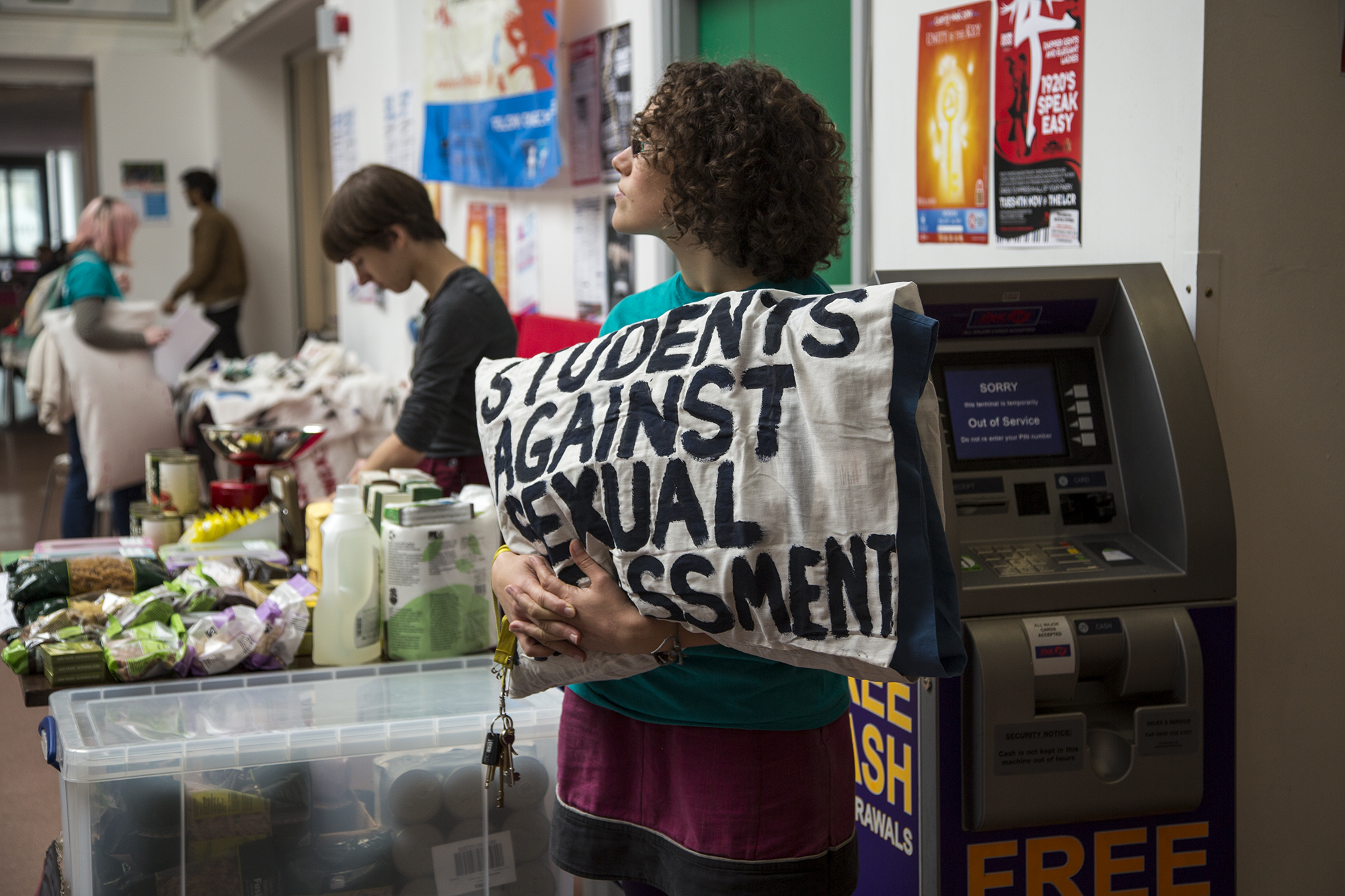Carry That Weight
On May 15th, 2014, Emma Sulkowitz, a student at Columbia University, wrote a piece for Time entitled "My Rapist is Still on Campus". "I was raped by a fellow classmate the first day of my sophomore year" it begins. "Ultimately they decided he wasn’t guilty... every day, I am afraid to leave my room." A visual arts major, Sulkowitz decided to use her rape, and the mishandling of it by the university, as inspiration for her senior thesis. She made headlines when photographs of her carrying her 50-pound, extra-long twin mattress around the university emerged online. She was raped in her own bed, in her dorm room, and her performance piece is a protest against the manner in which her case was dealt with. Her rapist is not only still walking freely around the campus, despite the fact that two other students have shared stories of their sexual assaults by him, but she has also faced threats from fellow students for speaking out about it.
Today, in solidarity with the many victims of sexual assault and domestic violence, students, staff, faculty, and everyday citizens across the country took part in Carry That Weight marches through their respective cities. Named after Sulkowitz's performance piece, the marches aimed to convey that "carrying a mattress with others brings us together to collectively help carry the weight, shows our shared support for survivors, and our collective commitment to working together toward cultural and community-level change to end sexual and domestic violence" [x].
I headed to the University of East Anglia campus at noon, where a group of feminists had organised their own Carry That Weight march. In their interpretation of the message, they had adorned pillowcases with messages of solidarity, and created a large banner bearing the words "Carry That Weight Against Sexual Violence". A large mattress, carried by 4 participants, led the hour-long march from the campus and into the main city, where passing cars honked their horns and pedestrians stared in curiosity.













